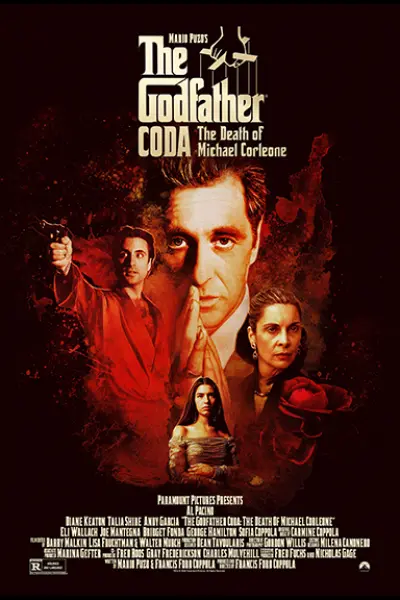
"The Godfather Part III," the final installment in Francis Ford Coppola's epic trilogy, released in 1990, concludes the story of the Corleone family, focusing on the efforts of Michael Corleone to free his family from the criminal underworld. This film, while not as critically acclaimed as its predecessors, offers a complex exploration of themes such as redemption, legacy, and the inexorable nature of past sins.
Set in the late 1970s and early 1980s, the narrative finds an aging Michael Corleone (played by Al Pacino) seeking to legitimize his business dealings and remove the Corleone family from the Mafia's grip. He is haunted by the decisions of his past, particularly the murder of his brother Fredo, which continues to weigh heavily on him.
A significant theme of the film is the quest for redemption. Michael, now introspective and weary of the bloodshed and moral compromises of his past, seeks to make amends and secure a better future for his children. His journey is emblematic of the struggle to escape the consequences of one's actions and the difficulty of finding peace.
Another theme is the weight of legacy and the challenge of breaking free from a familial and historical cycle of violence and corruption. Michael's daughter, Mary, and his son, Anthony, represent the new generation grappling with the legacy left by their father. Their stories highlight the challenges of breaking free from the shadows of a powerful figure.
The film also delves into the corrupting influence of power and the intertwining of organized crime with legitimate business and politics. The narrative intricately portrays the overlaps and gray areas between respectable society and the criminal underworld, suggesting that the line between the two is often blurred.
The role of the Catholic Church in the narrative adds a layer of complexity, with the film exploring themes of morality, sin, and redemption within a religious context. The involvement of the Church in the film's central plot points serves as a metaphor for the struggle between spiritual salvation and earthly corruption.
Finally, "The Godfather Part III" addresses the inescapability of the past. Despite Michael's efforts to change and make things right, he finds himself continuously drawn back into the web of crime and violence. This underlines the idea that certain actions and decisions leave a lasting impact that can't be easily undone.
In summary, "The Godfather Part III" brings a fitting, albeit somber, conclusion to the Corleone family saga. It explores deep themes of redemption, legacy, the corrupting nature of power, and the enduring impact of past sins, all set against the backdrop of the complex interplay between crime, business, and politics. The film's portrayal of Michael's final attempt to find peace and redemption serves as a poignant commentary on the challenges of escaping the shadows of one's past.

